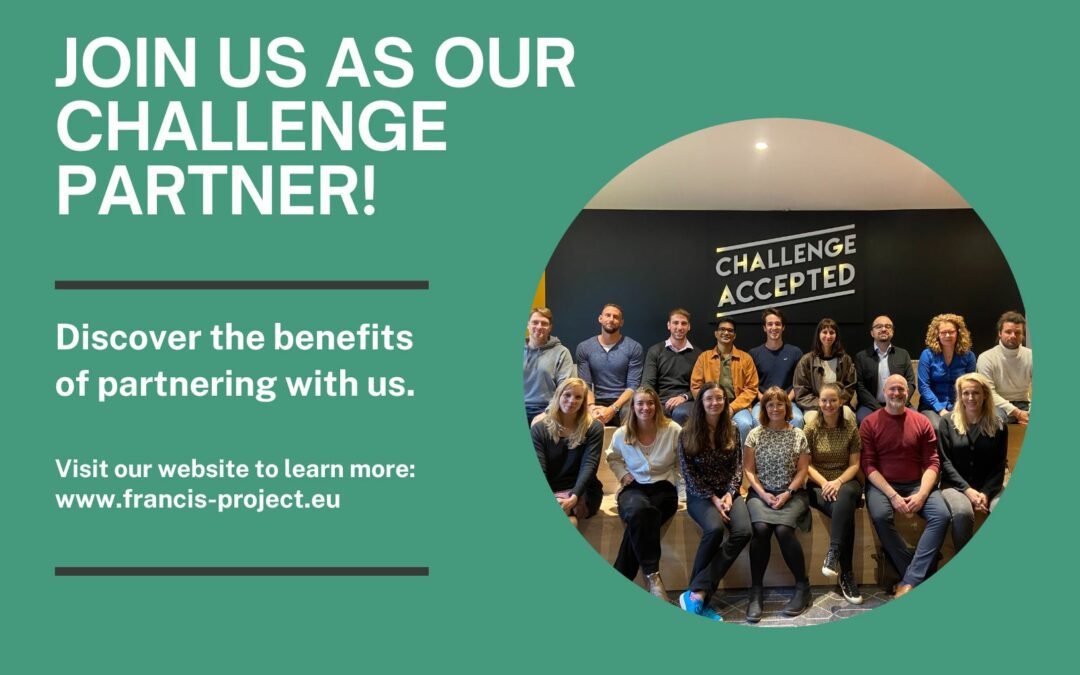Be our Second Challenge Host!
As we celebrate the success of our first challenge, the FRANCIS project is now eagerly looking forward to its second challenge. This upcoming challenge will again target marginalised groups of society that are often neglected in innovation and welcome global participation.
We are currently in search of a new challenge owner who can bring their unique perspective and expertise to this exciting initiative. The role involves setting up the challenge brief, detailing the target groups and countries and specifying the formats we use to work with citizens. The host will be part of our consortium and as such will collaborate on the challenge process, providing technical and market know-how, and assisting in the selection and market entry of innovative ideas. This is an unparalleled opportunity to engage with a global community, gain insights into customer-centric solutions, and be a part of a project supported by the European Commission.
Join us in this journey of innovation and impact as we gear up for the second FRANCIS challenge. Your involvement could be the key to unlocking the next wave of sustainable and frugal innovations.
Briefly about FRANCIS and the First Challenge
The FRANCIS project stands as a beacon of innovation and collaboration, aiming to harness the power of citizen-driven frugal innovation. With objectives like setting up a “Citizen Frugal Innovation Toolbox” and running two Open Innovation (OI) challenges, FRANCIS is at the forefront of fostering sustainable and accessible solutions. The project’s first phase in 2021 laid a scientific foundation, while the second phase, spanning from 2022 to 2024, focuses on running innovation challenges.
The first FRANCIS challenge, concluded on 17 August 2023, was a resounding success, showcasing a plethora of groundbreaking ideas from global participants. The challenge that aimed at kitchen and household solution brought to light innovations such as space-saving furniture, energy-efficient appliances, and smart waste management solutions. With participation from 56 teams across 12 countries in the first round, the challenge demonstrated the power of diverse and global collaboration.
